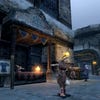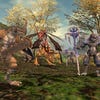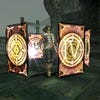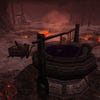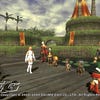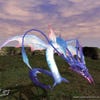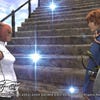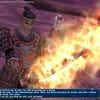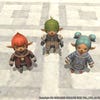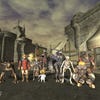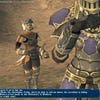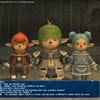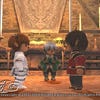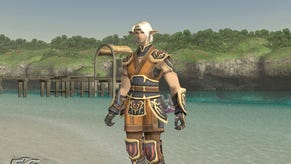Retrospective: Final Fantasy XI
Vana'diel or no deal.
When Square (as then was) announced that the next game in its headline Final Fantasy franchise was going to be an online game, it wasn't a popular decision. Bluntly, the kind of people who played Final Fantasy games had pretty strong ideas about the kind of people who played MMORPGs, and they weren't entirely charitable.
EverQuest's players didn't think much of us, either. Discussions followed a predictable track; they were basement-dwellers addicted to a dull and endless treadmill, we weren't real gamers at all. The ad hominems would flow thick and fast. We had a suspicious attraction to Asiatic pretty boys. They had a superstitious terror of soap and sunlight. And so on, and so forth.
The upshot was that Final Fantasy's fans felt pretty betrayed by Square's decision to chase EverQuest's tail-coats - as we saw it. Fans of existing MMOs vacillated between lengthy expositions on why they didn't care about FFXI in the slightest, and concerned mutterings about how a load of plebs were about to invade their sacred hobby. It didn't help that the game was going to be primarily a PS2 title, one which would require the expensive hard drive and network adapter add-ons to function.
As launch neared, hearts softened in light of Square's relentless charm offensive. Gorgeous artwork, a hallmark of everything the company has ever done, depicted the game's five diverse races, its stunning locations and the little touches, like chocobo mounts and moogle housekeepers, which made the game distinctively Final Fantasy. The game's intro video, an epic piece of animation which showed an army of the five races trooping into a fantastical city under a natural stone arch, which they then defend from assault by demonic invaders, was a tipping point for many Final Fantasy fans.
For us in the West, there was over a year's wait between the launch of FFXI in Japan and its localisation for the USA (poor old Europe would have to wait a further year for it to appear on our shores, and then only the - admittedly superior - PC version). This was probably just as well, because despite a glowing review in Famitsu, early word of mouth wasn't very good, suggesting a buggy and distinctly unfinished game.
Within a few months, however, things picked up, with Square burning the midnight oil and introducing major new features at breakneck pace. The mood among Japanese people who had been early adopters of the game improved markedly, and sales picked up. "They put weather into the game last night!" a Japanese friend told me excitedly a short while after launch. "We didn't know until a player ran into the city shouting that it was raining outside. The whole city just emptied out into the field and stood there waiting for it to rain again!"
I don't know why, but that daft little vignette sold the game to me. It just seemed like such a homely, warm, community bonding kind of experience, and combined with a deep-seated love of the franchise itself, it melted my resistance. Later that day, I popped into the now long-defunct indie game store in my town and put my name on the pre-order list for the US version.
Final Fantasy XI was my first MMORPG. The last time I'd played an online game of this variety was when I tried out the ancient ancestors of modern MMOs, text-based MUDs, on FidoNet bulletin boards back in the early nineties.
Playing the game again now is an unusual feeling - a bit like performing archaeology on my gaming past (and indeed my social past, which has always been a little too closely tied to gaming for comfort). I've tried dozens of MMOs in the intervening years, including some of the early games which had passed me by before FFXI, and have had lengthy and committed, if not monogamous, relationships with several of them.
The result is that my reactions to FFXI now are very different to the dimly remembered magical awe of almost seven years ago. I'm vastly less tolerant of the game's peculiar foibles, for a start. The PlayOnline Viewer software, which is required to launch the game and manage your accounts, felt futuristic and sleek back then. Now it feels pompous, a messy and over-designed piece of software which was meant to be a launchpad for a myriad of Square online games which never actually materialised.
My tolerance for editing the Windows Registry in order to make the graphics of the game work acceptably has also diminished. FFXI actually remains a startlingly good-looking game, scaling impressively to modern hardware if you're willing to fiddle with Registry settings and manually set various parameters. There are guides online for it. I think I had more patience seven years ago for looking up guides online just to make my games look okay.
Other things, though, are simply a matter of expectations. Today, most of us have clear ideas about how MMORPGs should control, exemplified most clearly by World of Warcraft. WASD and a mouse; spells on number keys. It's a rare game that strays from this, other than to make minor adjustments (such as Age of Conan's multiple attack keys, ranged around the WASD buttons).
Final Fantasy XI, to someone used to this control scheme, is utterly insane. It's designed for a joypad, and tries to translate those controls onto a keyboard fairly directly. Mouse controls are only supported in the most rudimentary of senses. Inputting commands - to attack things, cast spells, view your stats, and so on - is a task accomplished entirely through a series of menus.













